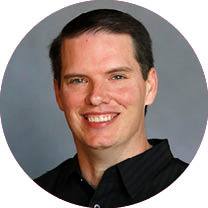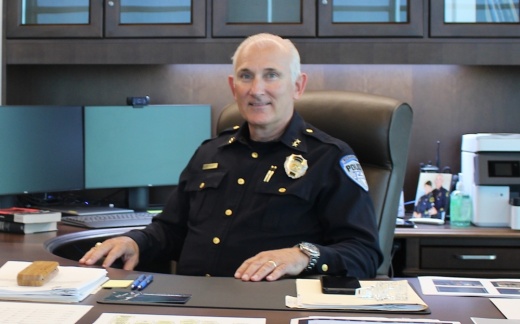Tittle was subsequently promoted to other positions within the department before his promotion to assistant chief over the Operations Bureau in March 2020. Tittle also helped put together the department's Crisis Intervention Team last year.
1. Why did you choose a career in law enforcement? What keeps you in this profession after three decades?
I'm not one of those people who knew I wanted to be a police police officer my entire life. I actually came home for the summer from Sam Houston State—[I] was down there studying criminology [and] psychology—and [decided] I'm going to jump into the police field to learn some. I was 21 at the time, and here I am today.
It really was a profession [where] I thoroughly enjoyed the camaraderie of the men and women on the job, but I immediately realized how we can impact the community.
2. What prompted you to leave the Dallas Police Department and move to the Richardson Police Department? How is policing in a smaller suburb different from the big city?
I was a finalist for the chief of police position at the end of 2017 in Dallas. So when that did not work out for me, I sought other opportunities, and I had actually reached a retirement opportunity in Dallas. I'm so grateful to have the opportunity just to work in Richardson, much less be the chief. There are so many differences [between the departments], but there are so many similarities. First and foremost, it's about people within the organization. And whether you're 3,600 or 300 [employees], it remains about people and relationships, and serving the people in the organization but also serving the people outside of the organization, i.e. the community.
3. Are there any changes to the department you want to implement over the next few years?
I've got four areas that I want to focus on. Those areas are communication and partnerships, that's one. The second one is organizational structure. The third one is accountability and performance. And the fourth one is just looking at our existing programs. I'm not looking for sweeping changes here in the organization because I truly believe we have a well-oiled machine already. I do look to make a few tweaks and to keep us relevant with current issues and times, etc., and to be progressive in my approach to policing and interaction.
4. How often do officers undergo de-escalation training, and what does that training look like?
De-escalation training is taught in our basic police officer academy. We lace our training with de-escalation. ... We've got to be able to use it, and we have to know that we should be going to de-escalation techniques as quickly as we possibly can. That's really where we need to start.
5. If residents have questions or concerns about the community’s public safety, can they reach out to you? What’s the best way to do that?
Absolutely, they can. My email address [is [email protected]]. The main number here [is 972-744-4800]. My door is open, and I'm always willing to listen. I'm always willing to look into things. I'm always willing to explain; Sometimes it's not to justify, but it's to explain.
6. Is there anything else you would like the community to know?
I am very much excited to be here. ... [I’m] very grateful for the support that [the community] provides this organization and policing as a whole. And again, my door is always open.
Editor's note: Responses have been edited for length and clarity.





